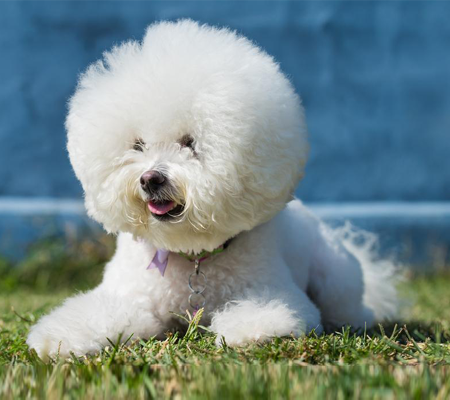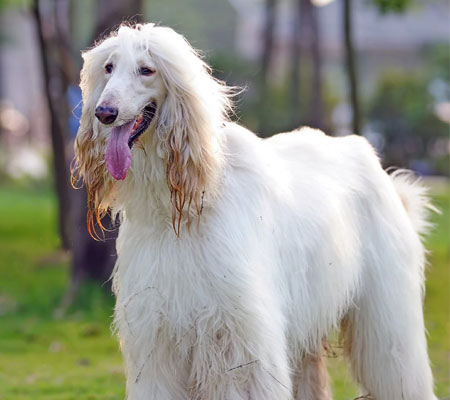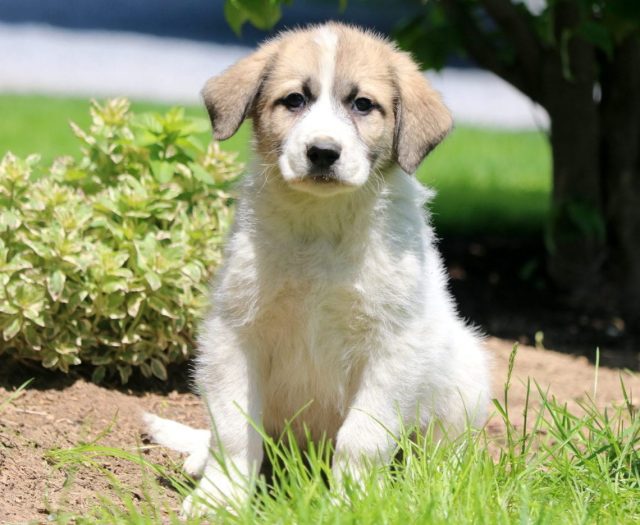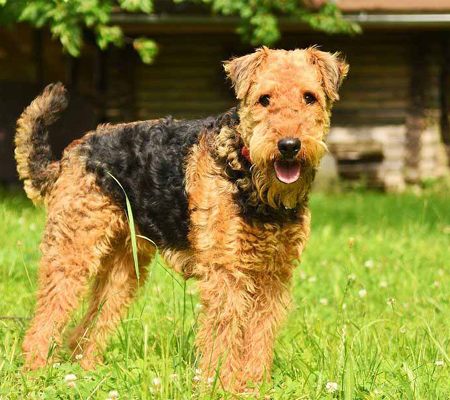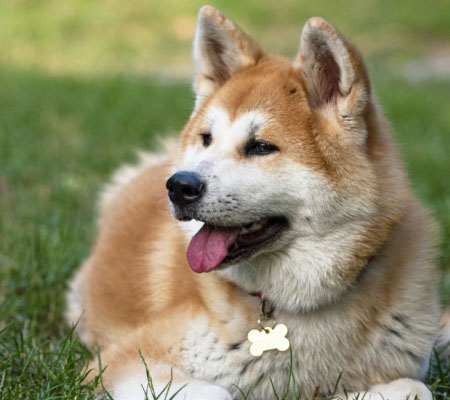The Bichon Frise (pronounced BEE-shawn FREE-say;
plural: Bichons Frises) is a happy, tiny dog breed with a penchant for mischief
and an abundance of affection to share. The Bichon appears like a child's toy
with its black eyes and fluffy white coat.
Even though they are purebred canines, they may
end up in shelters or rescue organisations. Keep in mind to adopt! If you want
to bring a dog home, don't go shopping.
It doesn't take long to discover that the Bichon
can be the happiest and most energetic friend you've ever had. They're extremely
lively and clever, and even inexperienced pet owners and apartment dwellers
will enjoy their company. They do, however, require a lot of playing and
movement, and they don't like being left alone for lengthy periods of time.
You'll gain tenfold from a loving Bichon if you can offer your dog a lot of
attention and love.
Bichon Frisé Dogs Highlights
Breed Size
Small
Nature
Playful, Friendly
Energy Level
Active
Intelligence
High
Barking Level
Infrequent
Coat Length
Short
Breed Group
Working
Droll Amount
Low
Good with
Seniors, Cats, Dogs, Children, Familes
Feed Level
Medium, High
Colour Type
Bicolor
Other Facts
Hypoallergenic, easy to train, requires lots of grooming, apartment-friendly, good for first-time pet owners.
Dog History
The Bichon Frise's precise origin is unknown, as
it is with many dog breeds. The Bichon is said to have descended from the
Barbet, a medium-sized woolly water dog, and that the name Bichon comes from
barbichon, which is a diminutive of the word barbet. The Bichon Frise,
Bolgnese, Coton de Tulear, Havanese, and Maltese are all members of the
Barbichon canine family. All hail from the Mediterranean and share a similar
appearance and demeanour.
The Bichon Frise breed was first documented in
the 14th century, when French sailors brought dogs back from Tenerife, one of
the Canary Islands. Bichon Frise dogs are supposed to have been transported
there by traders via the Phoenician trade route, and the Bichon Frise
originally developed in Italy.
Others say that Spanish sailors brought the
species to Tenerife, and that Italian (rather than French) sailors carried them
back to Europe in the 14th century. When the French invaded Italy in the 1500s,
several Bichon Frise dogs were transported back to France as war loot,
according to this version of the event.
Regardless of how the Bichon Frise arrived in
Europe, it rapidly became a favourite of European royalty. During the reigns of
France's King Francis I and England's King Henry III in the 16th century,
bichons were fashionable at royal courts. King Henry III adored his Bichons so
much that he carried them around in a special basket he wore around his neck.
Bichons became popular.
During Napoleon III's reign, the Bichon Frise
remained popular, but the little dog went out of favour with royalty until the
late 1800s. It was a common dog at the time, commonly owned by organ grinders
or circus performers, and occasionally taught to assist the blind. The breed
would have gone extinct at this time if it hadn't been for the Bichon's
intellect and charm.
However, after World War I, French breeders
developed an interest in the Bichon and tried to maintain the species. The
Société Centrale Canine de France approved the official breed standard on March
5, 1933, at which time the tiny dog had two names: Tenerife and Bichon. When
the Fédération Cynologique Internationale (an international kennel association)
recognised the Bichon Frise later that year, Madame Nizet de Leemans, the FCI
president, dubbed the breed the Bichon à poil frisé ("Bichon with the
curly coat"), and the appellation was anglicised to Bichon Frise. The
first Bichon Frise was admitted to the French Kennel Club's studbook on October
18, 1934.
In 1956, Bichons Frises were introduced to the
United States for the first time. In September 1971, the breed qualified for
the AKC's Miscellaneous Class, and in October 1972, it was accepted for
registration in the American Kennel Club Studbook. The breed became permitted
to compete in AKC dog shows in the Non-Sporting Group in April 1973. The
American Kennel Club (AKC) recognised the Bichon Frise Club of America in 1975.
10-14 inch 8-14 kg 13-15 year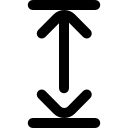
Height

Weight

Life Span
Health and Care
Bichons are typically healthy, however they are
susceptible to some health issues, as are other breeds. Although not all
Bichons may contract any or all of these illnesses, it's vital to be aware of
them if you're thinking about getting one.
Find a reliable breeder who will show you health
clearances for both your dog's parents if you're buying a puppy. Health
clearances demonstrate that a dog has been checked for and cleared of a certain
disease. Health clearances from the Orthopedic Foundation for Animals (OFA) for
hip dysplasia (with a score of fair or better), elbow dysplasia,
hypothyroidism, and von Willebrand's disease; thrombopathia from Auburn
University; and normal eyes from the Canine Eye Registry Foundation (CERF)
should all be expected in Bichons.
- Bladder Problems
- Allergies
- Patellar Luxation
- Vaccination Sensitivity
- Hip Dysplasia
- Juvenile Cataracts
Care
Bichons are lively dogs who thrive in apartments
if they get enough exercise and play — and they love to play. Never let your
Bichon alone for an extended amount of time. When leaving the house for even a
short period, the sensible owner places the Bichon in a box to minimise
destructive activity.
Dog Breed Care Tips and
Important Instructions
A bichon's trademark poofy white coat won't keep
its beauty forever. Brushing, washing, and visits to a professional groomer are
all expected.
If a bichon's hair isn't combed at least a few
times a week, mats can form, causing unpleasant skin conditions. In addition to
brushing at home, bichon frises should see the groomer every four to six weeks
for a wash, haircut, and nail trim. You should also wash their teeth twice or three
times every week. They will be even more protected against dental disorders if
they practise good oral hygiene on a daily basis.
Bichons have a lot of energy, yet they just need
modest exercise. A couple of times a day of romping in the yard or playing with
toys should enough. They also like competing in events such as obedience trials
and agility courses to demonstrate their sharp wits.
Training is one of the finest methods to bond
with a bichon frise. The breed is well-known for its ability to learn tricks
and orders, and it is no stranger to dog shows. The bichon may be quite
responsive to learning, yet they can also be devious. "They believe they
are smarter than you," Hollan explains. "Because they are so
intelligent, you must be quite meticulous in your training." Scolding will
make a Bichon take offence, so always use positive reinforcement to encourage
learning. To teach a bichon frise, you'll need a firm yet compassionate touch.
Feeding
1/2 to 1.5 cups of high-quality dry food per day,
split into two meals, is the recommended daily quantity.The amount of food your
adult dog consumes is determined by his size, age, build, metabolism, and
degree of activity. Dogs, like people, are unique individuals that require
different amounts of food. It practically goes without saying that a dog that
is very active will require more than a dog who is sedentary. The type of dog
food you buy makes a difference as well; the better the dog food, the more it
will nourish your dog and the less you'll have to shake into his bowl.
Rather than putting food out all the time,
measure his food and feed him twice a day to keep your Bichon in good form.
Give him the eye and hands-on tests if you're not sure if he's overweight.
Look down at him first. There should be a waist visible.
Then, with your thumbs down his spine and fingers stretched downward, place
your hands on his back. Without pressing too much, you should be able to feel
but not see his ribs. If you can't, he'll need to eat less and exercise more.
Urolithiasis is common in Bichons, as it is in
many petite breeds (stones in the urinary tract). The importance of food in the
treatment and management of this illness cannot be overstated; therapeutic
diets and increased water consumption can help avoid and control it.
Fun Facts
- Tori, a South Korean bichon frise, has over
300,000 Instagram followers, as well as her own wardrobe and miniature Mercedes
Benz convertible.
- During the 18th century, the great Spanish
painter Francisco Goya included several bichons in his works. "The White
Duchess" is the most well-known.
- Artists have been painting them for years.
- They were also popular with the French. During
the Renaissance, when Francis I was in power, Bichons found their way to
France, where they flourished.
Home Training Tips and General
Information
- There are four things you must do correctly.
- It doesn't have to be difficult to train your
Bichon Frise puppy. You can influence your puppy's behaviour and make training
easier right now by doing four simple things.
- Love is all a dog requires.
- One of the most prevalent dog claims I hear as a
canine behavioural consultant is that all a dog requires is love. Is that
correct or incorrect? You might be surprised by my response!
- What Should You Teach? (and When)
- Dog training begins the minute your puppy arrives
at your home. If you utilise the incorrect training approach, your puppy will
begin to make decisions about how he wants you to fit into his life, which will
lead to conflict and behavioural issues. You must respond appropriately to
anything your puppy does, or he will learn the incorrect things. Here's how I
propose teaching your Bichon Frise puppy (what to teach, when to teach it).
- Instill respect in your Bichon Frise.
- I utilise and suggest "Respect
Training" as a dog training approach for Bichons. When you say
"No," a dog who respects you will stop what he's doing and do what
you say. Teach your dog how to respect you.
- Teach The Correct Words In The Correct Context
- My training approach for Bichons includes
teaching certain phrases in precise ways so that your dog not only learns the
words, but also develops the respectful attitude that makes him want to obey
you. Teach your dog to comprehend what you're saying by teaching him words.
Teach those terms in the proper context, and he will follow your instructions.
- Housebreaking Your Bichon Frise is adorable.
- There are two essentials to breaking into a
house. There are only two, but you must get them both correct. And I don't mean
50 percent correct; I mean 100 percent correct. Otherwise, you'll wind up with
a dog that is only 50% toilet trained, which no one wants. So there you have it
— your two housebreaking keys.
- Getting to Know Your Bichon Frise
- Socialization is teaching your Bichon how to
interact with strangers and other animals in a pleasant manner.
FAQS
|
Why should you avoid getting a Bichon Frise? |
|
Your Bichon Frise's allergies force him to claw and gnaw himself into
terrible skin issues. Urinary difficulties and bladder stones are also a
worry in the breed, as are loose knee joints that may require surgery, ear
infections, cataracts, diabetes, and heart disease. |
|
What are the issues with Bichon Frise? |
|
With a lifetime of 12 to 15 years, the Bichon dog breed is susceptible to
major health issues such as hyperadrenocorticism, allergies, and patellar
luxation, as well as less serious issues such as cataract and canine hip
dysplasia (CHD); Legg-Perthes and liver disease may also affect the breed. |
|
Are bichon frises suitable as family pets? |
|
The bichon frisé is a wonderful all-around dog that is both lively and
sensitive. Bichons get along with other animals nicely. They are often seen
to be excellent with children. They scored highly in one poll when it came to
snapping at youngsters, although caution is advised if dogs and small
children are around. |
|
What should I know before purchasing a Bichon Frise? |
|
Bichon Frise are well-suited to bustling family life, where they will
flourish in a steady stream of activity and attention. They don't enjoy being
alone and will gladly coexist with other dogs or humans as long as they
aren't expected to keep themselves occupied all day. |
|
Is it difficult to toilet train a bichon? |
|
In most ways, Bichon Frises are quick learners, yet they may be
infamously tough to toilet train. Many pet owners are hesitant to use crates
because they do not want to restrict their dogs. Dogs, on the other hand, are
den creatures that don't mind being confined to a box on occasion. |
|
Are bichons guardians? |
|
While the Bichon Frise is not a guard dog, if someone approaches the
house, they will give an alarm bark. |
Bichon Frisé Dogs Unique Name
| Male Name | Female Name |
|---|---|
| Benji | Casey |
| Bingo | Daphne |
| Bubba | Delilah |
| Dexter | Destiny |
| Elmer | Fiona |
| Finn | Hailey |
| Goose | Kallie |
| Gus | Kira |
| Henry | Liberty |
| Hunter | Lily |
| Jack | Maya |
| Petey | Mocha |
| Rusty | Nell |
| Sammy | Pepper |
| Wyatt | Sasha |
| Zeus | Brodie |
| Wagner | Charisma |
| Banjo | Chelsea |
| T-bone | Kellie |
| Tinky | Tequila |

